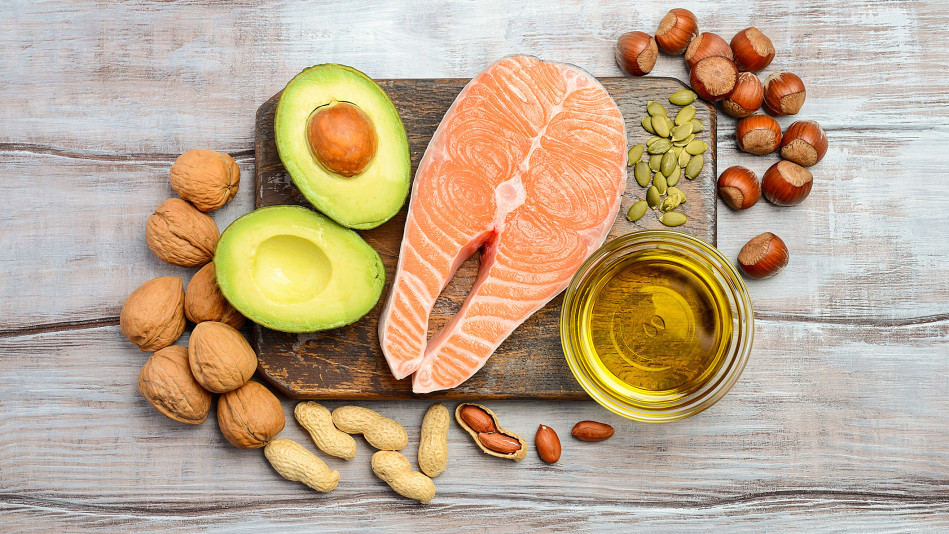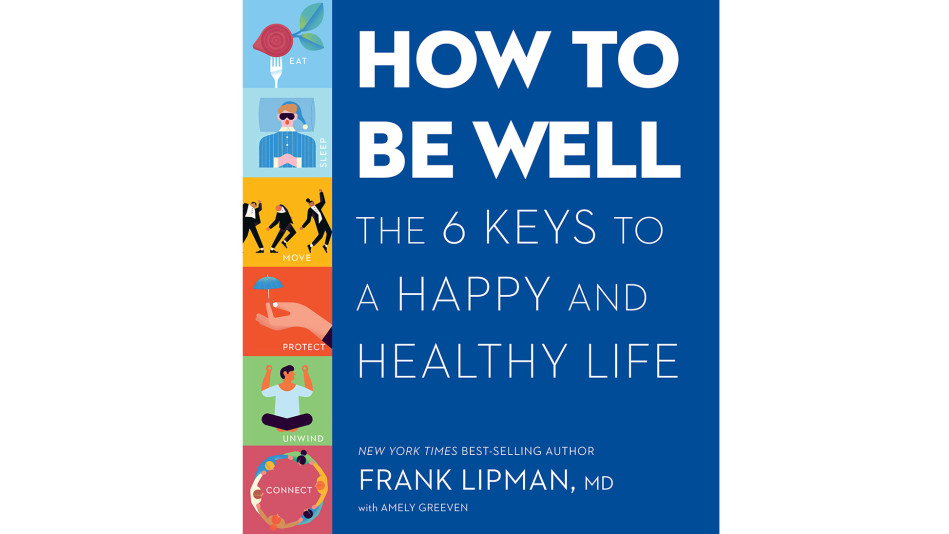27 Fatty Foods You Should Be Eating MORE Of
The author of How to Be Well explains why fat is necessary—and the best places to get it.

Photo: iStock/JulijaDmitrijeva
If your diet is lean and mean, please fatten it up. Eating a diet of low-fat foods is not the ticket to health we once thought. Fat is absolutely essential for every function of the body and brain, including healing and repairing functions, and when you eat enough of it every day, you enjoy a bounty of benefits: stable, longer-lasting energy and fewer hunger highs and lows; a more efficient metabolism (meaning more stable weight); clearer thinking and more balanced moods; healthier hormones; better hair, nails and skin; and fewer cravings. And because fat makes food taste good, you enjoy what you're eating so much more.
If the thought of eating more fat sends shivers down your spine, do not fear. This initiative is about adding real-food fats to your plate—naturally fat-rich foods and unprocessed fats in their original states—and letting them crowd out the refined carbs and sugar that might otherwise take up the space. Real-food fats not only deliver powerful protective benefits, they are hard to overeat because they digest more slowly, giving your brain and hunger-regulating hormones more time to register fullness.
Fat-Rich Foods
The raw materials you use as part of your meals and snacks. Be careful about your sources—the fattier the food, the more important that it comes from a quality source, as nutrient value and toxins accumulate in fat.Animal foods
Organic chicken with skin (dark meat)
Grass-fed-and-finished red meat (some cuts are lean, others are fattier; ask your butcher)
Pastured pork, including pork belly and bacon
Lamb
Eggs, ideally pasture-raised and organic
Fatty cold-water fish (sardines, mackerel, herring, wild salmon)
Dairy that works for you (goat and sheep cheese; cow cheese if tolerated; grass-fed butter; yogurt/kefir)
Bone broths
Plant foods
Avocado
Coconut (oil, butter, milk, cream)
Nuts and nut butters (in moderation; preferably raw [unroasted])
Seeds (pumpkin, chia, sesame, flax, hemp)
Chocolate
Olives and olive oil
Pouring and Spreading Fats
The things you drizzle, spread, or spoon over your food (or into your smoothie or coffee) straight from the bottle. Olive oil
Flax oil
Hemp oil
Nut oils
Nut butters
MCT oil (liquid coconut)
Cacao butter
Dairy butter
Ghee
Cooking Fats
What you use to make raw food cooked. Animal fats like ghee and butter, duck fat, pork fat, chicken fat, tallow (to sear your protein)
Plant oils like coconut oil, sustainably sourced palm oil, avocado oil and quality olive oils

Excerpted from How to Be Well by Frank Lipman, MD. Copyright © 2018 by Frank Lipman, MD. Used by permission of Houghton Mifflin Harcourt. All rights reserved.
If the thought of eating more fat sends shivers down your spine, do not fear. This initiative is about adding real-food fats to your plate—naturally fat-rich foods and unprocessed fats in their original states—and letting them crowd out the refined carbs and sugar that might otherwise take up the space. Real-food fats not only deliver powerful protective benefits, they are hard to overeat because they digest more slowly, giving your brain and hunger-regulating hormones more time to register fullness.
Fat-Rich Foods
The raw materials you use as part of your meals and snacks. Be careful about your sources—the fattier the food, the more important that it comes from a quality source, as nutrient value and toxins accumulate in fat.
Pouring and Spreading Fats
The things you drizzle, spread, or spoon over your food (or into your smoothie or coffee) straight from the bottle.
Cooking Fats
What you use to make raw food cooked.

Excerpted from How to Be Well by Frank Lipman, MD. Copyright © 2018 by Frank Lipman, MD. Used by permission of Houghton Mifflin Harcourt. All rights reserved.



